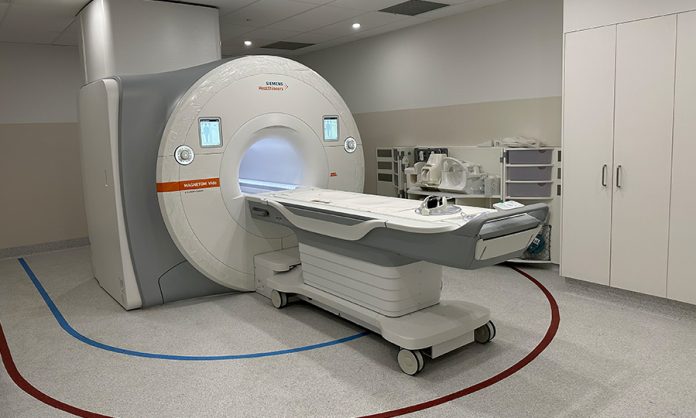What is magnetic resonance imaging (MRI)?
Magnetic resonance imaging (MRI) is a noninvasive, painless medical test to assist diagnosis and determine treatment for medical conditions.
MRI uses magnetic fields and radio waves to produce detailed images of the organs and soft tissues which are then displayed on a computer screen. The images are examined and diagnosed for any type of medical condition.
Some MRI examinations require the patient to swallow contrast material or receive an injection of contrast into the bloodstream, which allows the MRI to get a more detailed image of the condition being analysed.
Important magnetic resonance imaging (MRI) facts
- An MRI scanner uses no x-rays or other radiation
- MRI scans are usually at a higher cost than regular x-rays or CAT scans
Why magnetic resonance imaging (MRI) is important
MRI is an excellent medical test to provide clear images of the following:
- Soft tissues
- Organs
- Nerves
- Blood vessels
- Brain
- Spinal cord
The MRI displays these in a much clearer way than are available though CAT scans, ultrasound or regular x-rays.


